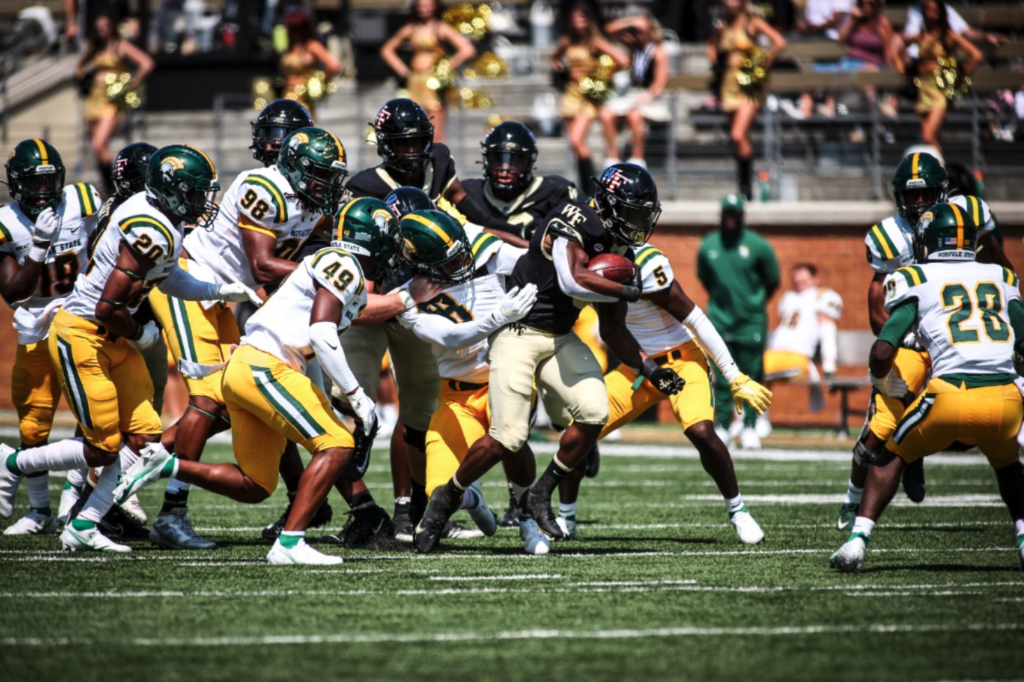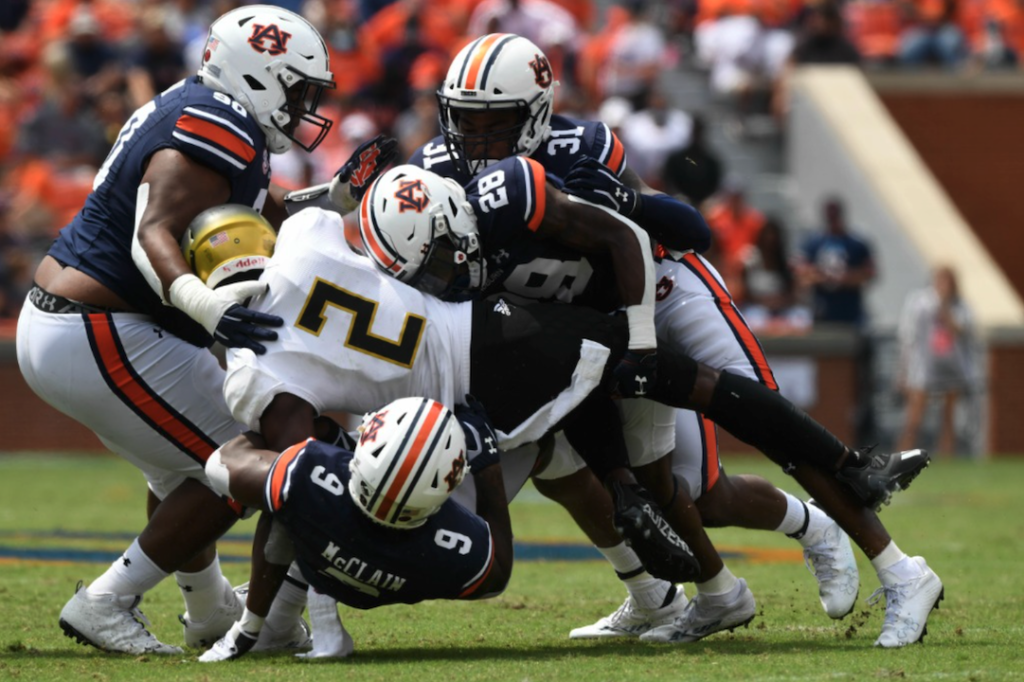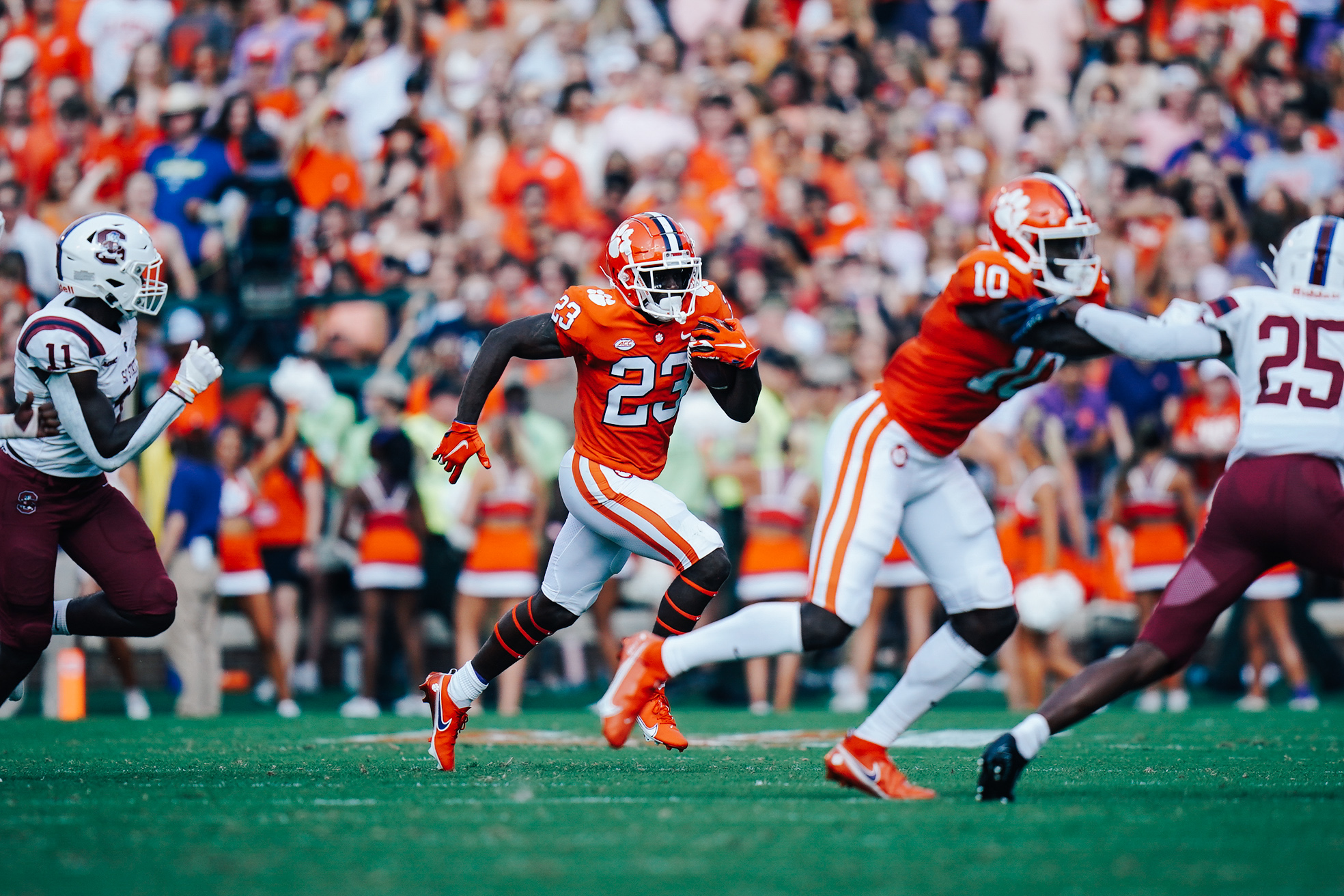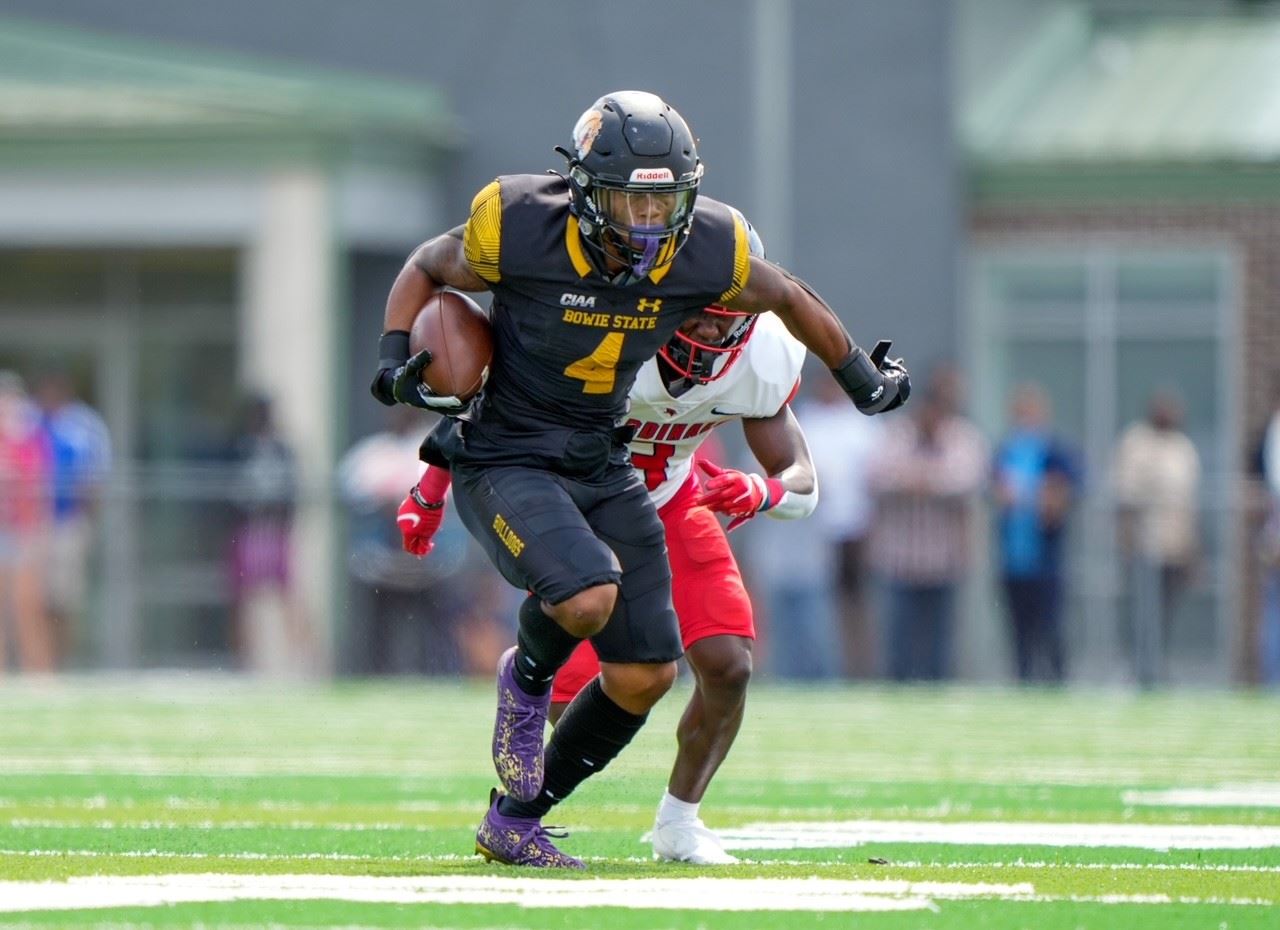Week 2 of the college football season saw a schedule heavy on HBCU-FBS matchups that featured all too familiar lopsided outcomes.
Grambling State was beaten 37-0 by Southern Miss. Texas Southern was never in a 66-7 loss to Baylor. Alabama State and Howard were each shut out 62-0 by Auburn and Maryland, respectively. Morgan State was trounced by Tulane 62-20.
Historically, there has been a longstanding debate whether these so-called “money games” actually benefit Black college football programs outside of schools receiving six-figure checks in exchange for being sacrificial lambs for FBS early-season victories.
The opinion of coaches involved varies, with some saying the matchups provide valuable experience for players to compete in 80,000-seat stadiums against NFL-caliber talent.
Others determine there is no upside to their teams tangling with FBS programs, particularly versus Power Five opponents.
‘I want to give our guys a chance to compete and win’
Delaware State head coach Rod Milstead has instituted a scheduling philosophy that is free of FBS-HBCU contests. He wants to give players a realistic opportunity to have early-season success in nonconference play instead of enduring unnecessary physical and psychological tolls.

“The reason the schedule is the way it is, is because I want to give our guys a chance to compete and win,” Milstead said Monday during MEAC coaches availability. “Before I got here, we were on a different model where we were playing bigger schools, and really playing out of our league, and starting the season 0-2 and 0-3. That’s not fun. It tears the morale down and losing is contagious, and so is winning.
“I want to teach my guys how to win, how to play four quarters. The schedule is set up to where it gives our guys in the best position to be successful.”
First-year Norfolk State head coach Dawson Odums, who has experience scheduling games against FBS opponents going back to his days at Southern, explained the process is a balancing act, especially since the MEAC is fewer in numbers and game dates need to be filled.
“It’s just trying to find the right teams to play without getting your team beat up,” said Odums. “It’s tough but we understand the difficulties we have when it comes to scheduling and you’ve got to do the best job that you can and try to give your young men an opportunity to have success.”

While HBCUs often stand little chance of actually winning on the field versus more talented and deeper rosters, these games, said, longtime South Carolina State head coach Buddy Pough, can serve as an opportunity for players to get on NFL scouts radars with solid performances.
“That is always a talking point when we’re getting ready to play these kinds of games, said Pough, whose Bulldogs lost 49-3 to No. 6 Clemson. “Those guys who seem to be doing well at the next level, do well in these kinds of settings. We encourage our guys to go out and play well because it does not go unnoticed.”
The other obvious advantage is that HBCUs immediately are able to acquire several hundred thousand dollars overnight that can be invested in their athletic and academic programs.
All told, HBCU football programs were paid about $2.4 million combined for games this past weekend.
‘All money ain’t good money’
“But more importantly the platform — the shot in the arm it does for the revenue for the university — the unforeseen benefits of being nationally televised to be able to promote your program, you know, those priceless things,” said Alabama State head coach Donald Hill-Eley.
“The more we continue to sell our brand and put ourselves in a situation where people want to watch us week end and week out, then we will start getting our worth. Until then, we have to continue to use these venues to be able to promote our program and HBCU football.”
Deion Sanders, whose Jackson State Tigers play its first-ever game against an FBS opponent in his tenure when it travels to Louisiana-Monroe on Saturday, is not necessarily a fan of the practice universally, even with the addition of revenue.
“Normally you just get paid to go get beat, right? That’s really the goal,” the coach said. “Somebody pays you. Your program makes more money than it normally would. I don’t believe in that … I don’t know how that helps anybody.
“It helps the budget but it kills the morale,” he said. “How can getting your butt kicked — I mean really kicked — help you as a team? All money ain’t good money. All money ain’t good money.”


